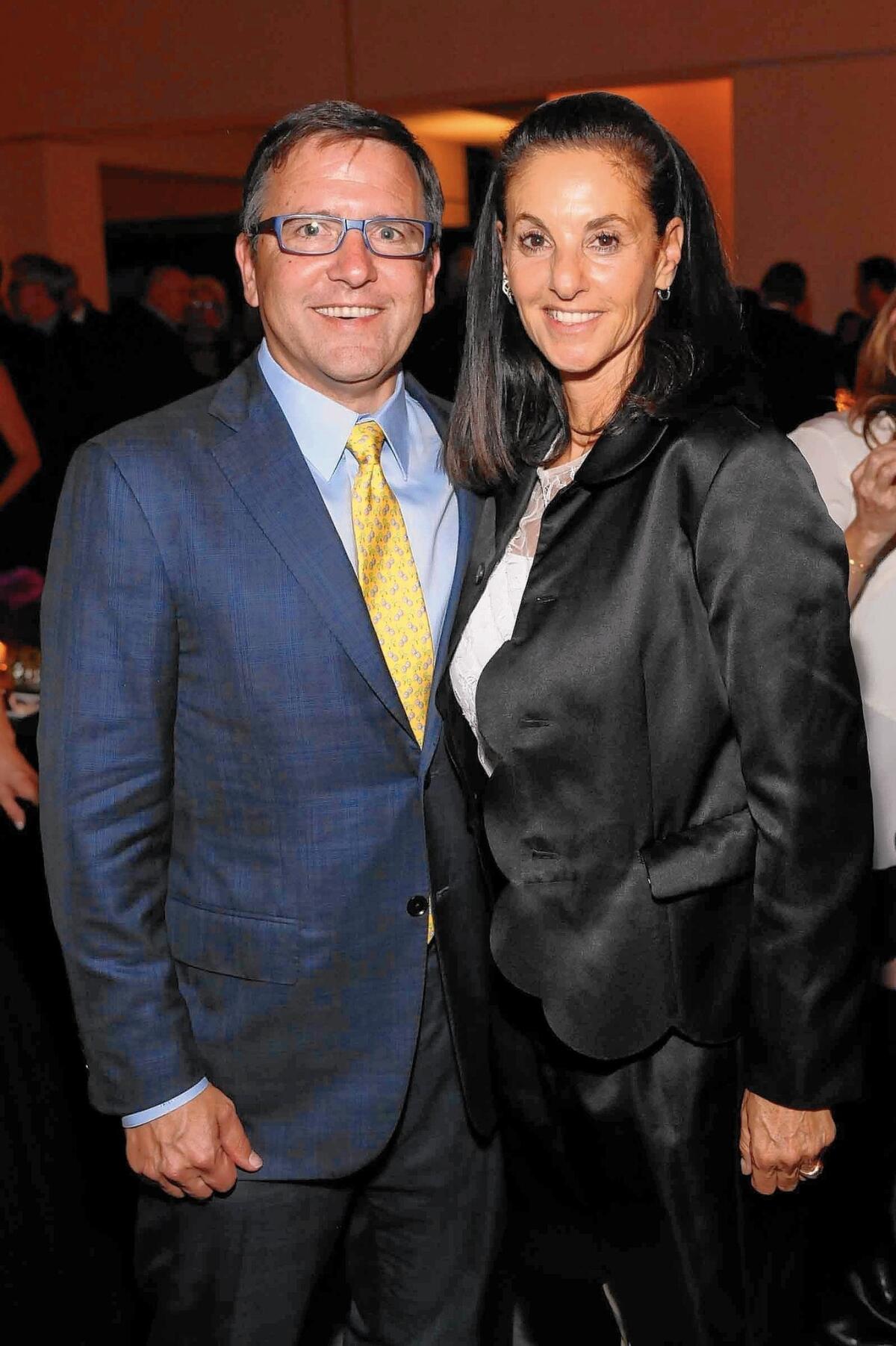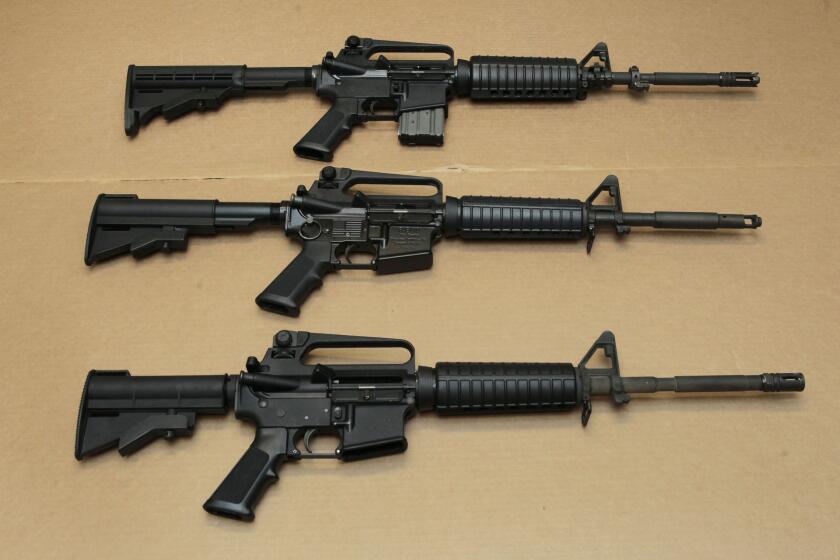After wasting millions of dollars, California GOP donors close their checkbooks to presidential candidates
- Share via
California’s Republican donors have invested heavily in the 2016 presidential race, with little return. The vast majority of the $55 million they have spent boosted candidates who have dropped out, according to a Times analysis of financial disclosure documents.
Now, as the nominating contest hurtles toward the state’s June 7 primary, most are no longer opening their checkbooks but rather observing the intraparty nomination fight from the sidelines, frustrated by the turns the race has taken.
“There won’t be any more money coming from me — none,” said Chris Rufer, who founded Morning Star Co., a tomato processing firm based in Woodland, outside Sacramento.
Rufer, who donated $662,400 to efforts supporting Kentucky Sen. Rand Paul’s unsuccessful bid, said of the three remaining GOP candidates, “I’m just not all that impressed.”
Election 2016 | Live coverage on Trail Guide | Track the delegate race | Sign up for the newsletter
Rufer is among more than 23,000 Californians who have donated to Republican candidates or super PACs backing them in the 2016 cycle, according to financial disclosure documents that detail all contributions over $200 through March 31.
More than 15,000 donors saw a candidate they favored leave the race, and of those, only about 1,200 have given to a candidate still competing, or to the effort to stop GOP front-runner Donald Trump from winning the nomination.
“I think we’re taking a deep breath and trying to figure it all out. It’s gotten to be quite a tangle,” said Silicon Valley venture capitalist William H. Draper III, who gave $102,700 to former Florida Gov. Jeb Bush’s presidential run.
“I’m going to be on the sidelines for a long time,” said Draper, former president of the Export-Import Bank of the United States.
If these donors remain on the sidelines, the eventual Republican presidential nominee could end up with money problems in the general election. In the last two presidential campaigns, Californians gave more money than donors from any other state to the GOP nominee.
This year, some Californians who contributed to one or more of the 14 Republican presidential candidates who have withdrawn say they will now send their money where they believe it will have the most impact: fighting Democrats’ effort to retake the Senate and increase their numbers in the House.
“Republican donors shifting their money into House and Senate races is essentially raising the white flag on the Republican presidential campaign,” said Dan Schnur, director of USC’s Jesse M. Unruh Institute of Politics.
Anthony Pritzker, a billionaire heir to the Hyatt Hotel chain, spent $525,400 to support Florida Sen. Marco Rubio’s unsuccessful bid. The Beverly Hills resident said he plans to focus on competitive down-ticket races, such as the reelection of Republican Sens. Rob Portman of Ohio and Kelly Ayotte of New Hampshire.
Republican donors shifting their money into House and Senate races is essentially raising the white flag on the Republican presidential campaign.
— Dan Schnur, director of USC’s Jesse M. Unruh Institute of Politics
The majority of California GOP money donated in this cycle went to three candidates and the political action committees supporting them: $15.1 million for Bush, $11.8 million for Rubio, and $9.5 million for former Hewlett-Packard chief and unsuccessful 2010 Senate candidate Carly Fiorina.
As the field has narrowed, Texas Sen. Ted Cruz and Ohio Gov. John Kasich have seen an increase in the amount of money coming from Californians to support their candidacies, but nothing close to what their vanquished rivals raked in.
Donors here — and across the nation — have not contributed significant sums to Trump, who does not have a traditional fundraising operation and has largely self-funded his campaign through loans.
Cruz, Kasich and Trump were never popular with California donors. The trio and their affiliated super PACs combined raised half the amount Bush and his super PAC did through March 31, according to the financial disclosure documents.
Cruz and his allies are the biggest beneficiaries of the donors whose preferred candidates have dropped out, collecting $1.8 million.
“He is one who can unify our party and bring us back together, so we are doing everything we can to support him and make sure Donald Trump doesn’t win,” said Margarita Palau Hernandez, a Pasadena attorney who was a major donation bundler for Bush and recently joined Cruz’s national finance committee.
Some prominent donors have lately focused solely on stopping Trump.
Billionaire Bill Oberndorf Sr., a Mill Valley hedge fund manager who spent more than $1.5 million supporting Bush, donated $750,000 to Our Principles, the super PAC aimed at stopping Trump.
Hewlett-Packard Enterprise chief Meg Whitman, the billionaire who unsuccessfully ran for governor in 2010, and her husband spent more than $300,000 supporting New Jersey Gov. Chris Christie’s presidential aspirations before castigating him for endorsing Trump. Since then, Whitman has donated $100,000 to the anti-Trump effort and is considering giving more.

Kasich’s presidential bid has accumulated only about $600,000 from donors who had supported other candidates.
The Ohio governor, whose one victory this primary season came in his home state on March 15, is arguably more temperamentally and philosophically aligned with California donors, but many are skeptical of his viability.
“The consistent donors who have been in the game a long time lean toward Kasich but don’t see the pathway,” said Jeff Randle, a GOP strategist and former senior advisor to 2012 nominee Mitt Romney who is deeply connected with the state’s Republican donors.
He said many donors were working their way through the five stages of grief. “Most are now getting to the acceptance stage that it’s going to be Cruz or Trump.”
Still, despite Kasich’s long-shot odds, he is winning over some big-money donors here.
Among them is Robert Day of Bel-Air, who founded the investment firm Trust Company of the West and according to Forbes sold 70% of it in 2001 for $2.5 billion.
He spent more than $1 million supporting Bush, Rubio, Fiorina and Christie before donating $50,000 to the super PAC backing Kasich.
“I think he’s the right guy; he’s been a governor,” Day said of Kasich in a phone interview. “I think governors make better presidents.”
What are his views on Trump, the most likely nominee? Day hung up without a comment.
Times staff researcher Maloy Moore contributed to this report.
Twitter: @LATSeema; @anthonyjpesce; @kurtisalee
ALSO
‘Saturday Night Live’ devotes entire show to Prince tribute
As downtown L.A. gentrifies, Fiesta Broadway isn’t as much of a fiesta
The most influential person on the coastal commission may be this lobbyist
More to Read
Get the L.A. Times Politics newsletter
Deeply reported insights into legislation, politics and policy from Sacramento, Washington and beyond. In your inbox twice per week.
You may occasionally receive promotional content from the Los Angeles Times.













